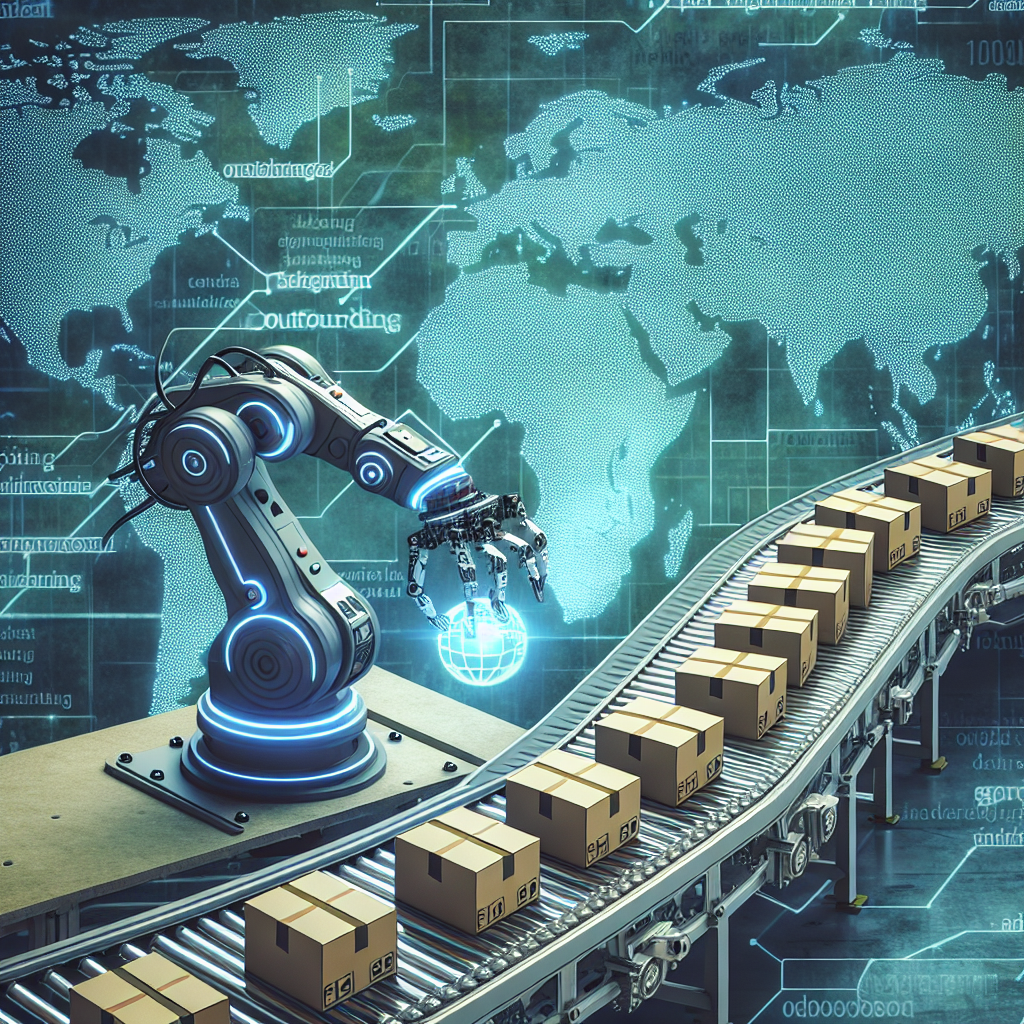The Role of AI Outsourcing in Supply Chain Management
In today’s fast-paced and ever-evolving business landscape, supply chain management plays a crucial role in ensuring the efficient flow of goods and services from suppliers to customers. With the rise of artificial intelligence (AI) technology, companies are increasingly turning to AI outsourcing to optimize their supply chain operations and drive greater efficiency and cost savings.
AI outsourcing involves partnering with external AI service providers to leverage advanced algorithms, machine learning, and data analytics to streamline supply chain processes, enhance visibility, and improve decision-making. From demand forecasting and inventory management to route optimization and warehouse automation, AI is revolutionizing the way companies manage their supply chains.
Benefits of AI Outsourcing in Supply Chain Management
There are several key benefits of AI outsourcing in supply chain management that are driving its adoption among businesses of all sizes and industries:
1. Enhanced Predictive Analytics: AI algorithms can analyze historical data, market trends, and external factors to predict demand patterns more accurately. This enables companies to optimize inventory levels, reduce stockouts, and improve customer satisfaction.
2. Improved Inventory Management: By leveraging AI-powered tools, companies can optimize inventory levels, reduce carrying costs, and minimize the risk of stockouts or overstocking. This can lead to significant cost savings and improved operational efficiency.
3. Real-time Visibility: AI technology enables real-time monitoring of supply chain activities, allowing companies to track shipments, identify potential bottlenecks, and respond quickly to disruptions. This enhanced visibility helps companies make informed decisions and proactively manage risks.
4. Route Optimization: AI algorithms can analyze multiple variables, such as traffic patterns, weather conditions, and delivery schedules, to optimize delivery routes and reduce transportation costs. This can lead to faster delivery times, lower fuel consumption, and improved customer satisfaction.
5. Warehouse Automation: AI-powered robots and drones can automate repetitive tasks in warehouses, such as picking, packing, and sorting, to improve efficiency and reduce labor costs. This can enable companies to handle higher order volumes and meet customer demands more effectively.
6. Demand Forecasting: AI algorithms can analyze historical sales data, market trends, and customer preferences to forecast demand more accurately. This can help companies optimize production schedules, reduce excess inventory, and improve overall supply chain efficiency.
FAQs about AI Outsourcing in Supply Chain Management
Q: What are the key challenges of implementing AI outsourcing in supply chain management?
A: While AI outsourcing offers numerous benefits, there are several challenges that companies may face when implementing AI technology in their supply chain operations. These challenges include data integration issues, lack of internal expertise, resistance to change, and concerns about data security and privacy.
Q: How can companies ensure the success of AI outsourcing in supply chain management?
A: To ensure the success of AI outsourcing in supply chain management, companies should carefully evaluate their current processes, identify specific pain points or inefficiencies, and define clear objectives and key performance indicators (KPIs) for AI implementation. It is also important to select the right AI service provider with the relevant expertise and experience in supply chain management.
Q: What are the potential risks of AI outsourcing in supply chain management?
A: Some potential risks of AI outsourcing in supply chain management include data breaches, system failures, and unintended consequences of AI algorithms. Companies should implement robust cybersecurity measures, regularly monitor AI performance, and establish contingency plans to mitigate these risks.
Q: How can companies measure the ROI of AI outsourcing in supply chain management?
A: Companies can measure the ROI of AI outsourcing in supply chain management by tracking key performance metrics, such as inventory turnover, order fulfillment rates, transportation costs, and customer satisfaction scores. By comparing these metrics before and after AI implementation, companies can assess the impact of AI technology on their supply chain operations and financial performance.
Q: What are the emerging trends in AI outsourcing in supply chain management?
A: Some emerging trends in AI outsourcing in supply chain management include the use of blockchain technology for secure data sharing, the adoption of Internet of Things (IoT) devices for real-time tracking and monitoring, and the integration of AI with robotic process automation (RPA) for end-to-end process optimization. These trends are shaping the future of supply chain management and helping companies stay competitive in a rapidly changing business environment.
In conclusion, AI outsourcing is transforming supply chain management by enabling companies to leverage advanced technology and data analytics to optimize their operations, enhance visibility, and improve decision-making. By partnering with external AI service providers, companies can unlock new opportunities for cost savings, efficiency gains, and competitive advantage in today’s dynamic business landscape. As companies continue to embrace AI technology in their supply chain operations, it is essential to address key challenges, monitor performance metrics, and stay abreast of emerging trends to maximize the benefits of AI outsourcing in supply chain management.

